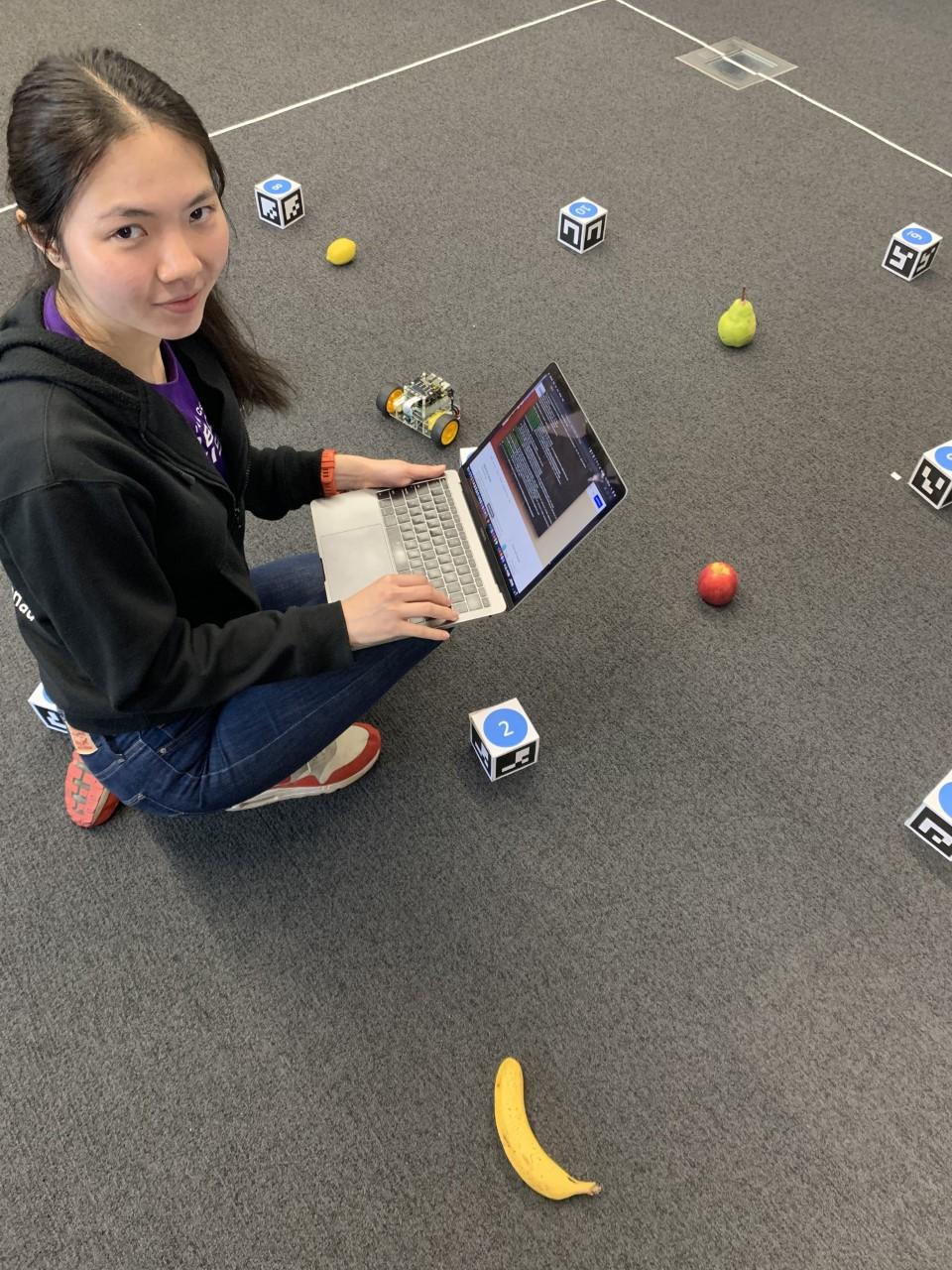A surgeon, an engineer and a PhD student walk into a virtual classroom. This is Robotic Vision Summer School

Teaching robots to see at the Robotic Vision Summer School 2021
Story written by Dr Sarah Keenihan, AIML
Sixteen graduate students and industry professionals attended the South Australian node of the 2021 Robotic Vision Summer School, held at the Australian Institute for Machine Learning (AIML) at the University of Adelaide over January 31 to February 5.
This year’s attendees included vascular surgeon Dr Abe Chandra, AIML engineer Stefan Podgorski and AIML PhD student Ryan Faulker.
An additional 34 attendees participated at Queensland University of Technology, Australian National University and Monash University, and 11 students at University of Sydney.
The Summer School is an initiative of the Australian Centre for Robotic Vision. The program incorporates both talks and practical sessions run by world leading researchers in robotics and computer vision.
Laying the right foundations
Based at AIML, Ryan Faulkner has just started his PhD exploring new technologies for mining. For him, enrolling in the Robotic Vision Summer School was all about improving knowledge.
“The start of a PhD is just reading papers and learning, and so an intensive summer school is a good way to get up to speed quickly,” Ryan said.
“I wanted to establish a strong foundation and have the right skills before I launched fully into my research.”
Moving forwards to his PhD project, Ryan is particularly focused on pulling high quality information from images and improving how robots make decisions on the spot, based on the information they can get from their environment.
“Robotic vision holds promise in mining not just for minerals identification and extraction, but also mine maintenance and safety for workers,” he said.
Filling knowledge gaps
Stefan Podgorski joined AIML as a research engineer in mid-2020, and was also an attendee at the 2021 Robotic Vision Summer School.
“The course has filled some gaps in my expertise, which is really useful for my work,” said Stefan.
“Previously I was working as a physicist, and while I had good knowledge of programming and maths, the summer school brought me up to speed on robotic vision and machine learning.”
Lectures in the summer school are delivered by teachers across Australia, and each node conducts its own tutorials.
“It’s really practical; it’s full on but it’s fun,” Stefan said.
Looking for ideas, and making connections
Dr Abhilash (Abe) Chandra is a vascular and general surgeon who practices at a number of hospitals in Adelaide.
Abe enrolled in the Robotic Vision Summer School as he sees a lot of potential for robotic vision in healthcare training and teaching, and for improving care of patients.
“I’m interested in using new technologies to try and improve medicine and surgery,” he said.
“I’m looking at entrepreneurial pathways to do this, especially using robotic systems, machine learning and deep learning.”
As a reservist in the Australian Army, Abe is also interested in developing autonomous systems to help retrieve patients from remote environments, or even perform remote surgical procedures when access is difficult.
From Abe’s perspective, the Robotic Vision Summer School offers him an educational experience, and inspiration.
“It’s hard to bring together different areas of expertise, such as computer science and machine learning with medicine and surgery,” he said.
“So I’m here because I’m interested in learning, I want to see how collaboration can make things better, and it’s great to meet new people.”
Other participants enrolled in the 2021 Robotic Vision Summer School included masters students, and professional staff from industries keen to incorporate robotic vision expertise and practise into their activities.
The Australian Centre for Robotic Vision is led by Director Professor Peter Corke, Deputy Director Professor Ian Reid, and Chief Investigators Professor Tom Drummond and Professor Stephen Gould. The Centre was initiated in 2014 with funding from the Australian Research Council.
